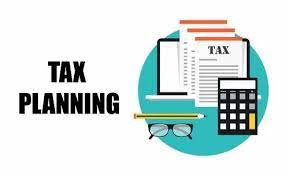
В В Tax Planning can help
Introduction
Tax planning is an essential financial strategy that helps individuals and businesses optimize their tax liabilities legally. It involves analyzing financial situations and structuring transactions to take advantage of tax benefits, deductions, and exemptions. By implementing effective tax planning, taxpayers can maximize their savings while remaining compliant with tax regulations.
1. Minimize tax liability:
The primary objective of tax planning is to reduce the amount of tax you owe. By utilizing available deductions, credits, exemptions, and favorable tax strategies, you can legally lower your overall tax liability.
2. Increase cash flow:
By effectively managing your taxes, you can optimize your cash flow. By minimizing your tax payments, you can have more money available for savings, investments, or reinvesting back into your business.
3. Take advantage of tax incentives:
Tax laws often provide incentives for specific activities or industries. Proper tax planning allows you to identify and leverage these incentives, such as tax credits for renewable energy investments or research and development activities. This can lead to significant tax savings and encourage certain desired behaviors.
4. Strategic decision-making:
Tax planning can influence important financial decisions. Whether it’s choosing the right business structure, making investment decisions, or planning for major transactions, considering the tax implications can help you make informed choices and optimize your overall financial situation.
5. Avoid penalties and audits:
By complying with tax laws and regulations through proper tax planning, you can reduce the risk of penalties, interest charges, or audits. Accurate record-keeping and timely filing of tax returns are essential components of effective tax planning.
6. Long-term financial planning:
Tax planning is an integral part of long-term financial planning. By considering tax implications in your overall financial strategy, you can align your goals, investments, and estate planning to minimize future tax burdens and ensure efficient wealth transfer.
It’s important to note that tax laws and regulations can change, so it’s essential to stay informed and adapt your tax planning strategies accordingly. Consultation with a qualified tax professional or financial advisor is highly recommended to navigate the complexities of tax planning and ensure compliance with relevant laws and regulations.
Benefits of Tax Planning
- Reduces Tax Burden – Helps in legally minimizing taxes through exemptions, deductions, and credits.
- Encourages Investment – Encourages individuals and businesses to invest in tax-saving schemes.
- Ensures Compliance – Helps taxpayers meet their legal tax obligations, avoiding fines and penalties.
- Improves Financial Efficiency – Allows for better allocation of financial resources.
- Supports Retirement Planning – Helps in securing financial stability post-retirement through tax-efficient investments.
Usage of Tax Planning
- For Individuals – Used to reduce personal tax liability through deductions and exemptions.
- For Businesses – Helps in optimizing operational costs and structuring financial strategies.
- For Investors – Assists in investing in tax-saving instruments like mutual funds, insurance, and retirement plans.
- For Estate Planning – Ensures proper wealth transfer with minimal tax impact.
Limitations of Tax Planning
- Legal Restrictions – Tax laws are complex and subject to change, which may impact planning strategies.
- Risk of Misinterpretation – Poor tax planning can lead to legal complications if misunderstood or misapplied.
- Short-Term Benefits – Some tax-saving strategies provide only temporary relief.
- Requires Professional Expertise – Effective tax planning often requires the assistance of financial advisors or tax consultants.
Application of Tax Planning
- Short-Term Tax Planning – Immediate tax-saving strategies such as investing in deductible expenses.
- Long-Term Tax Planning – Strategic planning for wealth creation and retirement savings.
- Investment-Based Tax Planning – Utilizing tax-saving instruments like ELSS, PPF, and insurance.
- Defensive Tax Planning – Ensuring compliance with tax laws while maximizing deductions and credits.
Comparative Table: Tax Planning vs. Tax Evasion
| Feature | Tax Planning | Tax Evasion |
|---|---|---|
| Legality | Legal and encouraged | Illegal and punishable |
| Purpose | Minimizing tax liability through legal means | Avoiding tax payments fraudulently |
| Consequences | Financial savings and compliance | Penalties, fines, and legal consequences |
| Ethics | Ethical financial management | Unethical and fraudulent practice |
| Examples | Claiming deductions, investing in tax-saving schemes | Hiding income, falsifying records |
Conclusion
Tax planning is a vital financial tool that benefits both individuals and businesses by legally reducing tax liabilities, improving financial efficiency, and ensuring compliance with tax laws. While it requires knowledge and expertise, strategic tax planning helps secure financial stability and growth in the long run.
FAQs
1.What is tax planning?
Related Topics
Tax planning and tax avoidance?
How tax planning is different from tax evasion?
What does tax planning include?
To Visit:В https://www.incometax.gov.in
For further details visit:В https://vibrantfinserv.com/
Contact:В В В В 8130555124, 8130045124
Whatsapp:В В https://wa.me/918130555124
Mail ID:В В В В В В operations@vibrantfinserv.com
FB Link:В В В В В В https://fb.me/vibrantfinserv
Insta Link:В В https://www.instagram.com/vibrantfinserv2/
Twitter:В В В В В В https://twitter.com/VibrantFinserv
Linkedin:В В В https://www.linkedin.com/in/vibrant-finserv-62566a259/
В 